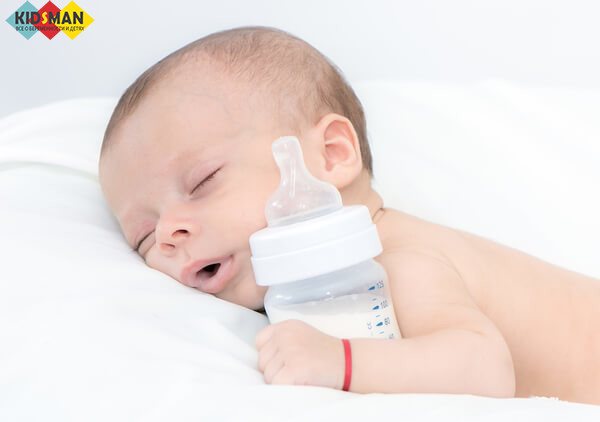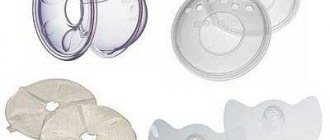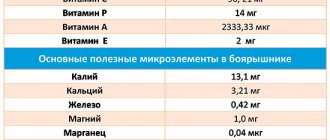Like many other issues related to children, breastfeeding (and especially its termination) causes serious controversy among mothers and even doctors. Elderly pediatricians and grandmothers claim that breastfeeding after a year is pampering and can even harm the child. More modern experts rely on the recommendations of the WHO (World Health Organization) and advise breastfeeding until two years of age, and lactation consultants ask you to listen to the needs of your baby, recommending maintaining several feedings per day for up to 2.5 years or more. It's no wonder moms often feel confused about how to proceed. Let's think logically.
Duration of breastfeeding in humans as mammals
Humans, from a biological point of view, belong to the class of mammals. Animals have no preconceptions or preconceptions about how long to feed their young with their own milk, so feeding continues until a natural, non-violent end.

Our closest relatives are primates. Chimpanzees and gorillas are most similar to us in genotype (98% of genes). If you compare a person with these animals on a number of points, an amazing thing becomes clear: the required duration of breastfeeding for modern children is significantly underestimated. Judge for yourself:
| Mammals studied | Comparable sign at which animals complete feeding | Appropriate age for a person |
| 21 species of primates | The appearance of the first permanent molars | 5.5-6 years |
| Chimpanzees and gorillas | Ratio of feeding time to gestation period (feeding is approximately 6.1-6.4 longer than pregnancy) | 9 months * 6 = 4.5 years |
| Large mammals | Increase in body weight 4 times compared to birth weight | 2.5-3.5 years |
| Primates | Achieving body weight equal to 1/3 of adult weight | 5-7 years |
| Primates | Half the time until puberty | 6-7 years |
Thus, judging by the above table, the duration of breastfeeding in a person should be at least 2.5 years ! And this despite the fact that most children nowadays are artificial, and a mother who feeds a child after a year (and even more so after a year and a half!) usually doesn’t want to advertise it, because “they won’t understand”...
Benefits of breastfeeding for a child
The benefits of breast milk after 1.5-2 years remain exactly the same as they were at 6 or 12 months:
- Thanks to breastfeeding, the child experiences harmonious physical and psychological development;
- Immunoglobulins contained in milk protect the baby’s mouth from pathogenic microflora, which is very important, since he constantly puts everything into his mouth;
- Breastfed babies have a sufficient amount of potassium, calcium and iron in their bodies, they practically do not have anemia;
- Thanks to mother's milk, the child rarely suffers from colds and intestinal diseases. Milk contains lysozyme, lactoferin and other substances that help strengthen the immune system.
- Even after a year, human milk contains vitamins and minerals that are so important for the proper formation of all organs and systems;
- The sucking process has a positive effect on the proper development of the bite and the entire jaw apparatus.
Breastfeeding baby
Duration of breastfeeding in different peoples of the world
Cultural traditions regarding the timing of breastfeeding vary greatly from country to country. Currently, the following trend can be noticed: in Europe, the USA, Australia and China, babies are fed breast milk for a very short time. Most babies receive formula supplementation in the maternity hospital and soon switch completely to artificial feeding. The rare mothers who still breastfeed try to wean their child before his first birthday. In some countries (for example, England, Portugal, Israel), such a short period of breastfeeding is explained by short maternity leave. In others, the reason lies in generally accepted attitudes (in particular, in France, breastfeeding is rather an exception to the rule).
In Russia, the average feeding time is 1-2 years; this is due to the legacy of the Soviet period, when breastfeeding up to a year was considered optimal. Usually, after a year, mothers try to wean their baby from the breast.
In India, breastfeeding continues for quite a long time - 3-4 years, but mother's milk is considered not very healthy, and early complementary feeding is practiced (from the first days of life).
African children have been breastfed on demand for quite some time. In addition, they are constantly in contact with their mother, while in a sling behind her back. Thanks to this, African children are ahead of European children in development, but after a sharp weaning at 2-3 years they “lose ground.”
As for tribes and nationalities with a traditional way of life , long-term breastfeeding and gentle weaning are common among them - on average, at 2-4 years. However, there are also tribes that do not limit children’s feeding time and encourage breastfeeding up to 5-7 years.
About the benefits of breast milk
Mother's milk is rightly called white gold. The variety of composition of this product never ceases to amaze. Only mother's milk contains antibodies that protect the child's body from infectious and non-infectious diseases. Breast milk is preceded by colostrum, which contains the entire immune complex. The intake of colostrum into the child’s body is a kind of vaccine against various infections.
To understand the full benefits of this product, you need to familiarize yourself with its composition. The benefits of breast milk are formed by the following components:
- Water. Biologically active liquid is the basic component of breast milk. This liquid is absorbed by the child's body 100%, so if the baby eats only mother's milk, then he does not need additional water.
- Fats. This component replenishes the baby's energy costs. The fats entering the body help strengthen the child’s immunity and ensure the full development of the baby’s central nervous system. In addition, breast milk supplies cholesterol, which is necessary for the production of vitamin D.
- Carbohydrates. Breast milk contains milk sugar (lactose), which stimulates the development of the baby's central nervous system, normalizes intestinal function and ensures the absorption of iron in the body.
- Squirrels. This component is the basis for the full growth and development of the newborn baby’s body. Protein deficiency in the body disrupts the development of the central nervous system and slows down the growth of the entire organism.
- Vitamins and minerals. There are more than 25 types of them in breast milk. Each component ensures the normal course of metabolic processes in the child’s body.
We suggest you read: Can nursing mothers drink chamomile?
Until what period can you expect milk to appear? Pediatricians determine this period as 3-5 days after birth. During this period, you can carry out stimulating exercises:
- The baby should be breastfed every two hours;
- There is no need to worry about the lack of milk; in the first 3 days, the baby has enough colostrum. Stress can cause the mammary glands to stop producing milk;
- you should increase the amount of warm liquid consumed;
- It is necessary to exclude any liquid and water from the baby’s diet.
How long can you breastfeed your baby?
This is a very good question. For some reason, many mothers find breastfeeding something difficult and exhausting, although it is difficult to imagine a more natural process. If others are trying to convince you that breastfeeding after a year or a year and a half is stupid, think about why they are doing this? Are they trying to force you to live by their beliefs by repeating the experiences of others? Or convince themselves that they did everything right with their children?
Breastfeeding is a process involving two people: mother and baby . Therefore, the decision on its duration should be made only by the mother, and not by the local pediatrician or other well-wishers.
If you want to breastfeed because you are sure that your baby still needs it, don’t hesitate and feed. No one will advise you on specific numbers, because each child is individual. But if there is such an opportunity, it is advisable to continue breastfeeding until its natural end, when both mother and baby are ready for it.
When is it not recommended to stop breastfeeding?
Many pediatricians do not recommend stopping breastfeeding in the following situations:
- When a baby is teething;
- During the period of intense summer heat, since the baby can very easily catch an intestinal infection;
- During an epidemic of colds and viral diseases. The child’s immune system is invulnerable only thanks to mother’s milk;
- Stress: the baby went to kindergarten, a change in environment or place of residence, as well as the mother going to work. Weaning will only increase the burden on the child’s fragile psyche;
- During the period of illness of the baby. You should not start weaning for at least a month after recovery.
Long-term breastfeeding brings enormous benefits to the mother's health and also has a beneficial effect on the physical and mental development of the baby. Until what period of breastfeeding should be continued, each mother must decide independently, based not only on the needs of the baby, but also on her own capabilities.
Until what age should you breastfeed?
No one will deny that breast milk is the only complete food for a newborn baby. Any artificial mixture is just an attempt to get closer to the ideal product given by nature itself. Therefore, the need for breastfeeding is obvious; another question is how long it will last. When answering it, it is important for mom to be honest with herself.
Some women wonder how many months they should breastfeed their baby. From the point of view of the baby’s physical and psychological health, this formulation is completely incorrect. A few months is very little! Breastfeeding for less than a year is better than formula or mixed feeding from birth, but it is still not ideal.
A child's immunity is formed until about 6 years of age , and it is mother's milk with its immunoglobulins that best helps cope with attacks from microbes and viruses from the outside during this period. Therefore, with breastfeeding, the principle “the longer the better” is relevant. Of course, the older the child, the less his health will be affected by whether he is breastfed at this time.
Don’t listen to the “experts” who scare you with all sorts of dangers of long-term feeding (the teeth and bite will deteriorate, the child will be too dependent on the mother, the boy will grow up to be a homosexual or a pervert, the mother will have health problems “like a woman,” etc.). There are NO studies confirming these “horror stories”. Ask an adviser what data he relies on, and most likely the answer will be embarrassed silence.
Weaning a child from the breast at a time that is far from natural will become an inevitable stress for his psyche and immune system. How long to breastfeed is a very complex and controversial question. If we talk about a child, self-weaning after 3 years or soft weaning on the initiative of the mother after 2.5 years is usually safe for his psyche and health . This is approximately how the natural completion of breastfeeding, organized correctly, occurs.
If you are tired of feeding, and breastfeeding seems to you to be the root of all evil, think about it: aren’t you shifting your own difficulties onto your baby? Is weaning through screams and tears, taping nipples and taking hormonal pills really the best choice in such a delicate and serious matter as ending breastfeeding? The decision is yours.
Basic stages of caring for a newborn
Provide your baby with conditions of maximum comfort; routine is very important for him - this has a beneficial effect on the development of the baby. Everything a child needs: good sleep, comfort, hygiene procedures and, of course, the love of parents.
What you need to know about baby sleep:
- a newborn baby sleeps a lot of time, stays awake to provide the body with food;
- the required amount of time for sleep is 8 – 9 hours. During the day, the baby's rest is divided into several periods of time. The total number of hours for a small person is 7 or 8;
- Don’t forget about naps during the day – your child definitely doesn’t mind relaxing in the fresh air. It has been scientifically proven that during a walk, sleep is always sound and long;
- the total waking time of the child should last no more than 1 hour - the baby should not be overtired;
- When sleeping for a long time, you need to wake up the baby very carefully so that in the future he does not confuse day with night. If this happens, it will be very difficult for you to return to your usual routine;
- The diaper must be of good quality and breathable. Change a dirty diaper - the baby is uncomfortable, this can cause anxiety, skin rashes, and diaper rash;
- For a comfortable day and night sleep, do not forget to ventilate the room. The maximum comfortable temperature is 20 – 22 degrees. Newborns very often have heat rash due to improper temperature conditions;
- If the child cannot calm down for a long time, give him the breast. Perhaps he was just hungry. The reason may be hidden in health problems. If the baby is capricious, cannot sleep and does not eat well, this is a reason to consult a doctor.
If you are a proponent of feeding by the hour, try not to overdo it - if the baby is sound asleep and does not show signs of restlessness, do not disturb him.
There are no special recommendations for an ideal regime - there is a natural factor: when a child is hungry, he himself will report it. Of course, too much sleep, incomprehensible behavior, tearfulness and lethargy should alert parents.
If these symptoms worsen, you should consult a doctor.
There are some recommendations for feeding babies:

Nutrition plays an important role in creating and maintaining a daily routine
Don't ignore these tips:
- Create a comfortable place for your child, a cozy nest in which he will be warm and comfortable. If possible, let him stay there more, do not put him on your chest all the time, do not carry him in your arms all day;
- For one meal, the baby should receive up to 90 ml of mother's milk. This indicator is individual, for each baby it is different. Body weight gain is an approximate guideline indicating the normal amount of food for a newborn. Pay attention to the child’s health status and physical activity.
If you are breastfeeding, adjust your diet: do not eat foods that can impair the quality and taste of milk. Such products include honey and citrus fruits (which can cause an allergic reaction), chocolate, sea fish, and tomatoes.
Do not eat fatty dairy products: hard cheese, cow's milk, drinks with preservatives and dyes, especially fast food. The listed products are strong allergens for a fragile child’s body and can provoke diathesis.
If your child is artificial, create a clear feeding schedule for him. The fact is that the composition of the adapted formula differs significantly from breast milk. The percentage of fat content may vary depending on the type of food.
Infant formula contains complex proteins that require longer digestion. Digestion takes longer, so the baby feels full longer.
If you overfeed your baby with a large amount of formula or give it ahead of time, stomach upsets and intestinal dysfunction may occur.
Often in this case, the child begins to spit up profusely or vomiting, pain and tension in the tummy (you can palpate it to feel it). Constipation often occurs, which lasts up to 3 days.
So, experts recommend a developed standard schedule for young parents whose babies are bottle-fed:
| A period of time | Feeding |
| 6: 00 | 1 |
| 9: 00 | 2 |
| 12: 00 | 3 |
| 15: 00 | 4 |
| 18: 00 | 5 |
| 21: 00 | 6 |
| 0: 00 | 7 |
Be prepared for the fact that for a long time (about 2 - 3 months) the feeding schedule for the night will not be clearly established. During the first month, the child should receive 90 ml of the mixture.
When the baby reaches 3 weeks of age, the volume can increase to 120 ml. If the baby eats mother's milk, its norm is from 50 to 90 ml at one time.
The normal number of meals for a bottle-fed baby is 8 times a day, with an interval of 3 hours. If a baby eats breast milk, he receives it on demand, about 10 times a day, at intervals of up to 2.5 hours.
Newborn babies may wake up frequently during the night (about 4 times). If you feed your baby on demand, keep in mind that theoretically this number of meals is allowed, but the main thing is not to overfeed the baby. Signs of overeating may include excessive regurgitation, pain and bloating, and colic.
Interesting fact: it is at night that a woman’s body produces a large amount of hormones that are needed to produce milk.
Infants receiving formula milk should not be fed more than once at night. If the baby becomes restless and often wakes up, be sure to observe the child and identify the cause of the problem behavior.
For example, it could be an elevated temperature in the room, too dry air, a lot of dust, or simply uncomfortable clothing.
If we talk about colic, according to statistics, it can begin at the beginning of the 3rd week after birth and last up to 4 months (or 6 months). To avoid this problem, you need to follow these recommendations:
- Apply a dry diaper, heated to a comfortable temperature, to the baby’s tummy. For example, iron it or wrap it around a heating pad;
- Give your baby a light tummy massage - stroke the skin with gentle strokes clockwise;
- a good proven remedy is dill water;
- developed gymnastics - make gentle, gentle movements of the child’s legs bent at the knees towards the stomach.
Remember that for the very first walk in the summer, the optimal air temperature should be up to 20 degrees. You can start with a quarter of an hour, gradually add time. If your first walk is in cold autumn or winter at sub-zero temperatures, it is better to be outside for no more than 10 minutes.
You should not walk for a long time with babies at low temperatures. After a month, increase the duration of the walk to 45 minutes. In summer, it is recommended to walk twice a day, for half an hour.
Do not wrap your baby in several layers of clothing; dress according to the season. If your baby's hands and feet are warm, it means he is comfortable. Mom is advised to pay attention to clothing in windy, rainy or damp weather - a small body is susceptible to colds.
This is explained by the fact that humid air contains a large number of pathogenic microorganisms that multiply quickly in such a climate.
It is recommended to take the child out into the fresh air immediately after he falls asleep. The regime should be set in such a way that there are 1 - 2 walks per day. After feeding, changing a diaper or sleeping, walk with your baby as much as possible; fresh air definitely won’t hurt.
In hot summers, it is not recommended to go out for a walk from noon to 17:00 in the evening. Try to walk before this interval or later. Choose a comfortable stroller for your child - this will make your stay in the fresh air even more enjoyable.
Do not forget to put a hat on your baby, pay special attention to clothing and its density - do not allow overheating or hypothermia. Be sure to wipe the newborn's face with a soft cotton swab dipped in boiled water at room temperature, or use baby wipes.
What procedures are mandatory for infants:
- do not forget that the umbilical wound requires special care: treat it with peroxide (3%), blot it with cotton wool in a solution of brilliant green to avoid infection. While swimming, do not rub anything (to prevent infection and inflammation);
- Wash your child with warm water, preferably boiled. The optimal temperature is 37 degrees, gradually reduce it;
- wipe your eyes with a cotton pad soaked in boiled water;
- pay attention to the spout: clean the inside with a rolled-up cotton swab or roller, wipe the outside;
- Ears should be cleaned twice a week: do not immerse the cotton wool deep into the ear canal, as wax will accumulate there.
Take care of your child, pay attention to him, look after him and take the established regime seriously.
Don’t forget about your mental and emotional state: talk kindly to your son or daughter, develop them, and take into account individual needs.
Washing and other procedures that must be carried out in the morning should also follow the established regime. This is usually between 6:00 and 9:00 am. Make your schedule individually, taking into account the needs of the baby and your wishes.
It is necessary to wash the baby in the morning; this is not only hygiene, but also important hardening. If you follow this simple rule, you will increase your child's immunity and protect him from skin diseases.
If you are breastfeeding, be prepared to change the diaper and wash the baby quite often. If there is no stool, the hygiene procedure should be carried out at least once every 3 hours.
Change your diaper after bowel movements, before feeding, and before and after sleep. Very often, a contaminated care product can cause discomfort for the baby, his appetite worsens, and he becomes whiny. If you leave everything as is, diaper rash and dermatitis may occur.
It is recommended to bathe your child in the evening, at approximately 8 – 9 o’clock. You can individually select the time that is convenient for you, the main thing is that it does not contradict the wishes of the baby. The ablution procedure calms the little one and sets him up for a calm and peaceful sleep.
The most suitable time is 40 minutes after eating. Bathe the baby every day, for about 10 minutes (it is important for the baby to get used to the water). Next time the time is increased to half an hour if there is no change in behavior.
Bathing in a large bath can be introduced after 3 weeks after birth. This is a convenient period: the child is accustomed to a large amount of liquid around, he can be taught to swim.
There are a number of medical contraindications to early exercise in ponds (or swimming at home): intracranial pressure, excessive nervous and reflex excitability.
After the ablution procedure, the umbilical wound is carefully treated (you need to wait until it is completely healed, this lasts approximately 17 days). It is very important not to forget about hardening: place your baby on his tummy or back without clothes to take air baths.
You can do them after changing clothes or changing diapers. Bring their duration to 5 minutes. Remember about a comfortable room temperature: 22 degrees is considered optimal.
Take time to do gymnastics and lightly massage your child. How the massage is performed: with careful, gentle and gentle movements, stroke your baby’s back, legs, and arms. The movements should be performed clockwise on the tummy (this will help with the frequent problem of colic or constipation).
Gymnastics involves performing simple flexions and extensions of the limbs. Let your child grab your thumb and lift it slightly. Babies love this simple exercise.
Carry out the lesson half an hour before feeding; there is no need to perform active exercises before going to bed at night - the baby may confuse day with night and then you will definitely not be able to rest.

The baby craves communication with mom and dad
Through play, a newborn learns about the world. A mother should be very attentive to spending time together with her child: the affection and attention of parents is incredibly important to him. For the harmonious and proper development of the baby, he simply needs tenderness and care.
Ideal time: when the little one is fed, bathed and awake. Read books to him, nursery rhymes, sing songs, talk. For games, use rattles that develop objects for his age.
Breastfeeding and self-weaning
If you follow the advice of “Soviet” pediatricians, you should wean your child from the breast at the age of one or at most one and a half years, while the baby cannot yet express too active resistance. “He’ll yell for a couple of nights and forget, you have to get over it!” - say “experienced” mothers. And such violence against one’s own child is considered the norm.
Usually, those who want to breastfeed until self-weaning are spoken of, at best, with slight bewilderment, or are even called fanatics, obsessed with breastfeeding, and even selfish (they say they don’t want to bother putting the child to bed or having leisure time, it’s easier for them to squeeze in the breast). Many people do not believe that children can refuse breastfeeding at a conscious age on their own. And yet, sooner or later this happens to any child who is not specifically excommunicated . Remember nature: animals are not familiar with such problems as the need to escape from their own cub or smear mustard on their nipples... Everything happens naturally to them.
The sucking reflex is the key to the survival of a newborn and the health of an older baby.
For children under one year old, this reflex is the main one. But, contrary to what most people think, it doesn’t fade away every year! Experts say that the sucking reflex persists in children until about 3 years of age, after which they gradually “forget” how to grasp the breast correctly. Breastfeeding is very important not only for the health, physical and mental development of the child; it creates an indescribably warm relationship with mom and helps to cope with age-related crises. How long to breastfeed is a very personal decision. We can only wish that you and your baby will embrace it together!
Main signs for completing natural feeding
Optimally, the child himself refuses the breast, but there are a number of signals indicating the baby’s readiness:
- It is applied to the breast less often;
- Learns to overcome emotions on his own without involving his mother in the process;
- Distracted when feeding;
- The child knows how to fall asleep on his own;
- Breastfeeding occurs no more than twice a day.
With such behavior of the child, it is not harmful to begin weaning if it is not accompanied by stressful situations:
- Long trip;
- The baby has a cold or other illness.
You can continue to breastfeed for as long as your heart dictates. Only your own feelings and the health of the baby will allow you to come to the right decision. Often mothers give up breastfeeding when they are faced with misunderstandings from loved ones. It is important to listen not to others, but to yourself. Even after 1.5 years, mother’s milk will not become “empty” or “useless” - at all stages it is considered the most valuable product for a child.

When it comes to stopping breastfeeding, a young mother is guided not only by her own desires and needs, but also takes into account the opinion of the child. Before weaning your baby, it is recommended to observe his behavior. A sharp ban on breast milk will cause stress in the baby and will negatively affect his general condition and mood.
Some children independently refuse their mother's breast at the age of 1.5-2 years. For other children, this age reaches 3-3.5 years. To avoid making a mistake in your choice, a nursing mother is advised to pay attention to the following signs:
- the baby's interest in the mother's breast begins to decrease, and he stops asking for it on his own;
- the child gets carried away with other things, forgetting about breastfeeding;
- the baby stops looking to the chest for emotional protection and consolation, as he learns to cope with experiences and pain on his own;
- the frequency of breastfeeding is less than 3 times a day;
- the child falls asleep on his own and his need for maternal presence disappears.
There is no clear answer to the question of how old a child should be breastfed. Some children may refuse at the age of one and a half years, while others apply until they are 4-5 years old. In each case, the decision to stop breastfeeding is made by the mother individually. To avoid mistakes, you need to pay attention to a number of signals:
- the child asks for the breast less and less often and tries to get to it on his own;
- the baby becomes more independent, learns to cope with emotions and pain, and therefore does not often turn to his mother for comfort;
- children are easily distracted from the breast by other activities and things;
- the process of falling asleep becomes independent, the presence of the mother does not become mandatory;
- daily breastfeeding is reduced to 1-2 times.
If the signs described above are found in the child’s behavior, then the process of weaning can begin.
Tags:breastfeeding baby
How long should you breastfeed your baby?
Here we will also rely on the opinions of experts.
On the question of how long to feed a baby, all doctors are more or less unanimous. Surovtseva Alla Pavlovna (pediatrician, candidate of medical sciences), and a large number of her colleagues agree with her, claims that half an hour is enough for feeding. The baby manages to get enough in 5-10 minutes and receive 90% of the milk that has arrived for him. And then communication with mommy begins. He inhales her scent, enjoys the warmth that soothes him, listens to her heartbeat. This is good for the baby and mother. Half an hour of nipple stimulation is enough for the milk to come again.

The baby sucks out the portion of milk he needs in the first 5-10 minutes. Then he can just lie at the breast and enjoy communication with mommy. In total, feeding takes no more than half an hour.
If the baby does not let go of the breast for more than 30 minutes, then we are talking about the so-called “lazy sucker.” Such a child sucks milk only when it flows freely. He is too lazy to work hard and suck out hind milk, so he just lies at the breast. In this case, you need to encourage the baby a little: tug his cheeks, tickle his nose or heels.
And finally, there is a special case when the baby needs to be constantly held at the breast and fed on demand, for example, when the baby is low birth weight and premature. This method is called the “kangaroo method”: the undressed mother holds the naked baby to herself, carries him like a kangaroo with her baby (under a robe) and feeds him when he wants and as much as he asks.
How to determine if your baby has enough milk?
How much milk does a newborn need per day, and how do you know if he has enough? You can determine this at home (in the absence of accurate scales) using the following indicators:
- as he pees: if the baby eats well and has enough milk, then he will make up to 18 peees a day. The diaper becomes heavy and swollen every 2-3 hours.
- How to poop: Breastfed babies may poop several times a day, or after each feeding. This is the norm.
To determine whether your baby is getting enough milk, you need to analyze how he pees and poops. Normally there should be 2-3 stools and 12-18 peees per day. If a child pees a little, has rare stools, and even with greens, then most likely he does not drink enough milk.
Many of the issues discussed about GW are just a theory. In practice, the child makes his own adjustments, which have to be taken into account. But don’t despair if everything doesn’t go as you planned. The main criterion that you should rely on is this: if the baby feels good, he is cheerful and active, then you are doing everything right.










